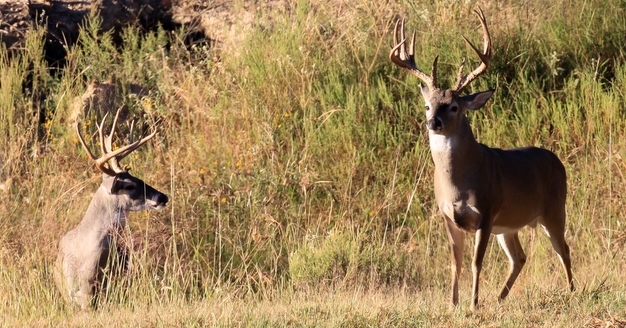There is no doubt that white-tailed deer hunting in Texas has changed over the past few decades. The terminology has definitely has: management bucks, breeder bucks, shooter bucks, deer pens, managed lands deer permits (MLDP), so on and so on. Anyone heading out hunting on a commercial operation had better sign up for a short-course on hunting terminology before even entering the gate. It’s not just deer hunting in Texas as it once was. It’s Texas trophy hunting in Texas. But I’m not even sure about the hunting part anymore.
There’s been some stuff brewing in the state for quite some time regarding deer ownership. It’s a gray area, to say the least. Landowners can buy deer, raise deer and offer deer for sale, but they only own them up to a point. You see, you can only shoot a state-owned deer. After all, every hunter needs either a hunting license tag or a state-issued deer permit. This argument over deer ownership is definitely a hot button, with both sides having valid arguments in my opinion. All I ask is that the good of the whitetail deer population be protected.

Source: If a judge orders TPW to compensate Anderton for them, the decision may prove private ownership in a state where every whitetail, even those conceived artificially and born in a pen, belongs ultimately to Texas and its people. It would signal a fundamental shift in the concept of wildlife as an irrevocable public trust. That outlook dates to the backlash to market hunting and the near extinction of whole deer species for the sale of pelts and venison. Beginning with Teddy Roosevelt’s presidency, a movement to set aside federal wildlife refuges took shape. The secretary of agriculture created hunting seasons and bag limits, effectively ending the mass harvesting of game species for personal gain. Deer populations rebounded.
Now wildlife conservationists can’t help but wonder if this isn’t somehow a creeping return to the bad old days. “We recognize that wildlife is a public trust, and it belongs to all people in the state, held in trust and managed on behalf of the people by private landowners,” says Doug Slack, director of the Wildlife Society’s Texas Chapter. “[Breeders] consider me old-fashioned, but they’re promoting new legislation that’s promoting ideas and concepts that came up in the 1800s.”
But because game species like whitetail deer are no longer in danger of extinction, the industry wonders whether the prevailing public trust model is outdated.
“There’s a lot of religious zeal and elitism in my profession that hangs tenaciously to that old belief that wildlife belongs to everybody, and that wildlife in commerce is an evil thing,” says Dr. James Kroll, a deer breeder and director of Stephen F. Austin State University’s Institute for White-tailed Deer Management and Research. “They’re looking at the days of market hunting, but those were days when there was no regulation.